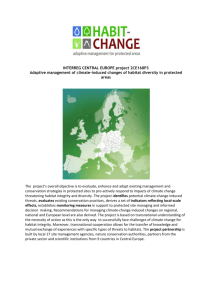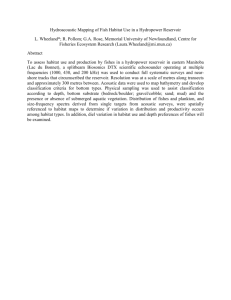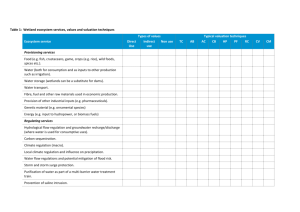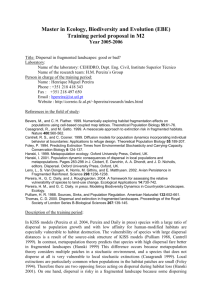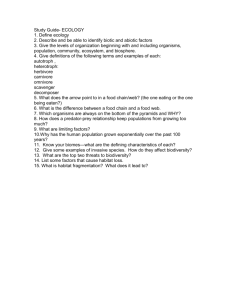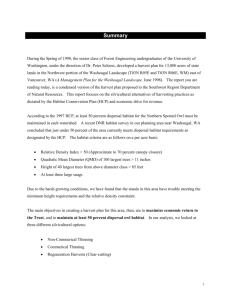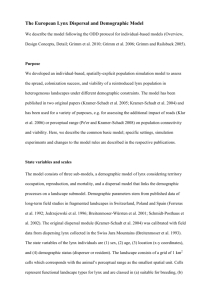ece31841-sup-0002-AppendixS2
advertisement
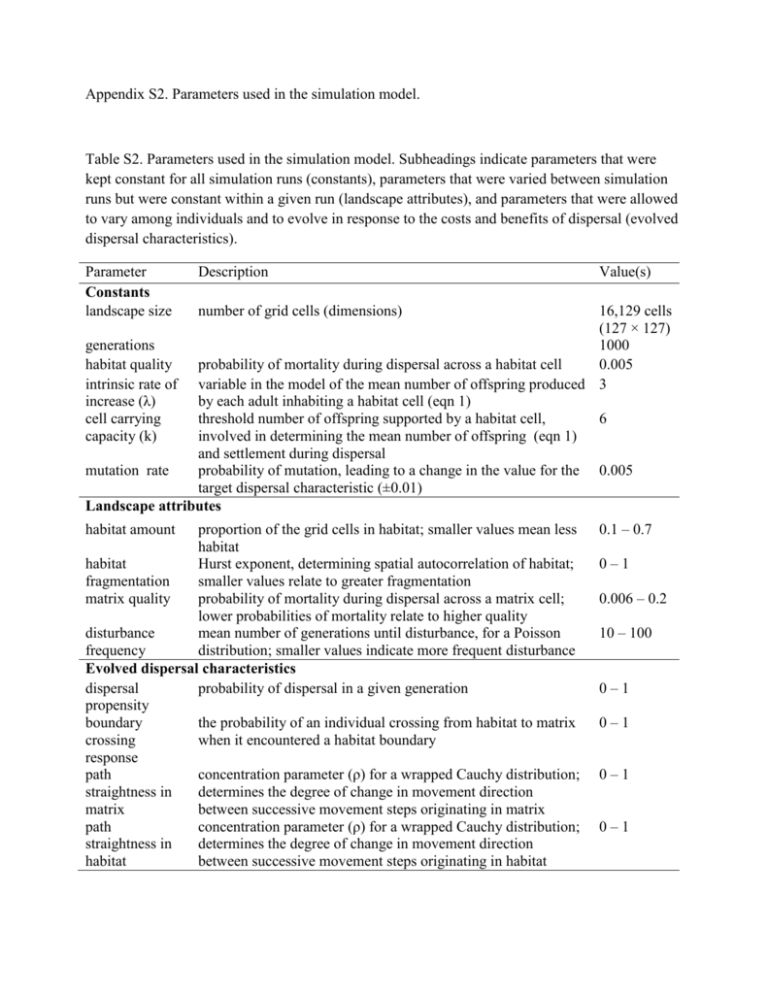
Appendix S2. Parameters used in the simulation model. Table S2. Parameters used in the simulation model. Subheadings indicate parameters that were kept constant for all simulation runs (constants), parameters that were varied between simulation runs but were constant within a given run (landscape attributes), and parameters that were allowed to vary among individuals and to evolve in response to the costs and benefits of dispersal (evolved dispersal characteristics). Parameter Constants landscape size Description Value(s) 16,129 cells (127 × 127) generations 1000 habitat quality probability of mortality during dispersal across a habitat cell 0.005 intrinsic rate of variable in the model of the mean number of offspring produced 3 increase (λ) by each adult inhabiting a habitat cell (eqn 1) cell carrying threshold number of offspring supported by a habitat cell, 6 capacity (k) involved in determining the mean number of offspring (eqn 1) and settlement during dispersal mutation rate probability of mutation, leading to a change in the value for the 0.005 target dispersal characteristic (±0.01) Landscape attributes habitat amount number of grid cells (dimensions) proportion of the grid cells in habitat; smaller values mean less habitat habitat Hurst exponent, determining spatial autocorrelation of habitat; fragmentation smaller values relate to greater fragmentation matrix quality probability of mortality during dispersal across a matrix cell; lower probabilities of mortality relate to higher quality disturbance mean number of generations until disturbance, for a Poisson frequency distribution; smaller values indicate more frequent disturbance Evolved dispersal characteristics dispersal probability of dispersal in a given generation propensity boundary the probability of an individual crossing from habitat to matrix crossing when it encountered a habitat boundary response path concentration parameter (ρ) for a wrapped Cauchy distribution; straightness in determines the degree of change in movement direction matrix between successive movement steps originating in matrix path concentration parameter (ρ) for a wrapped Cauchy distribution; straightness in determines the degree of change in movement direction habitat between successive movement steps originating in habitat 0.1 – 0.7 0–1 0.006 – 0.2 10 – 100 0–1 0–1 0–1 0–1



